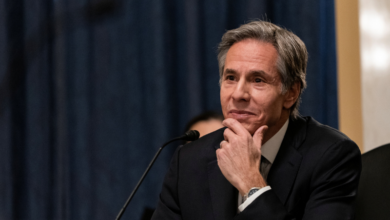‘We can’t see your private messages’: WhatsApp seeks to reassure users after new policy sparks exodus

WhatsApp on Tuesday sought to reassure its two billion users that their personal messages to friends and family will remain private after an update in its terms of service raised eyebrows on social media and was criticised by digital rights activists.
Unveiled on Wednesday, WhatsApp’s new privacy terms reserve the right to share user data, including location and phone number, with its parent Facebook Inc and units such as Instagram and Messenger.
Privacy advocates have questioned the move citing Facebook’s track record in handling user data, with many suggesting users to migrate to platforms such as Telegram and Signal.
In a statement, the messaging app sought to address “some of the rumours going around”, saying the new privacy policy will not affect the security of everyday conversations.
“We want to be clear that the policy update does not affect the privacy of your messages with friends or family in any way,” the company said. “Instead, this update includes changes related to messaging a business on WhatsApp, which is optional, and provides further transparency about how we collect and use data.”
WhatsApp said despite the update, neither it nor Facebook could read users’ messages or hear their calls with friends, family or co-workers. “Whatever you share, it stays between you,” it said, reiterating that users’ personal messages were protected by end-to-end encryption.
The Facebook Inc-owned app said it also did not keep logs of who users were messaging or calling and neither it nor Facebook could see the location of a user shared by them with someone on WhatsApp.
“When you share your location with someone on WhatsApp, your location is protected by end-to-end encryption, which means no one can see your location except the people you share it with,” it emphasised.
Whatsapp stated that it did not share users’ contact lists in their phones with Facebook.
Groups also remain private, according to the company. “We use group membership to deliver messages and to protect our service from spam and abuse. We don’t share this data with Facebook for ads purposes,” it said.
For additional privacy, WhatsApp said, users could choose to set their messages to disappear from chats after sending them.
Explaining its new terms, WhatsApp said messaging with businesses was “different than messaging with your family or friends”.
“We’re giving businesses the option to use secure hosting services from Facebook to manage WhatsApp chats with their customers, answer questions, and send helpful information like purchase receipts. But whether you communicate with a business by phone, email, or WhatsApp, it can see what you’re saying and may use that information for its own marketing purposes, which may include advertising on Facebook.
“To make sure you’re informed, we clearly label conversations with businesses that are choosing to use hosting services from Facebook,” it added.
Signal and Telegram have seen a sudden increase in demand following the update in WhatsApp’s privacy policy.
About 810,000 users globally installed Signal on Sunday, nearly 18-fold compared with the download numbers on January 6, the day WhatsApp updated its privacy terms, according to data from research firm Apptopia. The number is on track to cross one million.
WhatsApp, which saw a seven per cent decline in daily installs on Sunday compared with Wednesday, was downloaded by nearly 1.2 million users on Jan 10, according to Apptopia.







